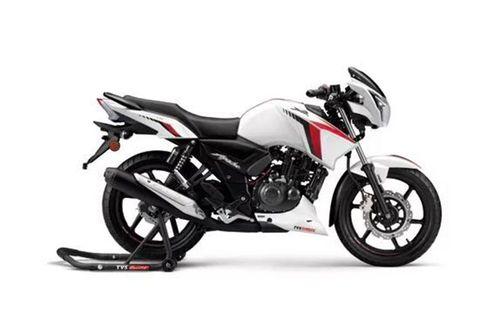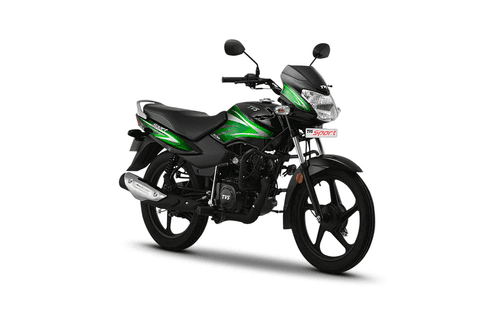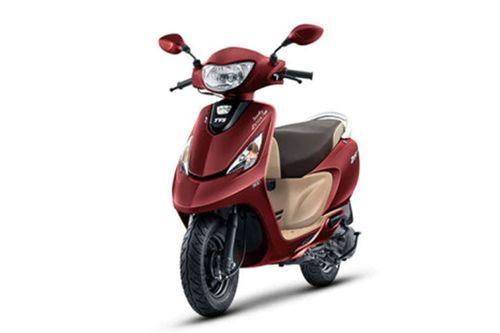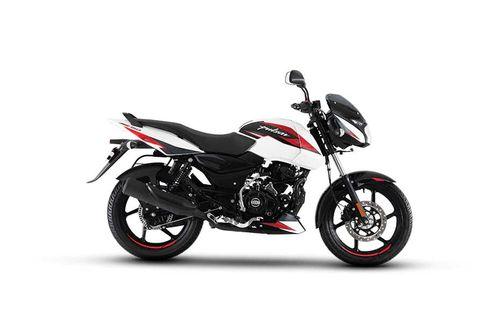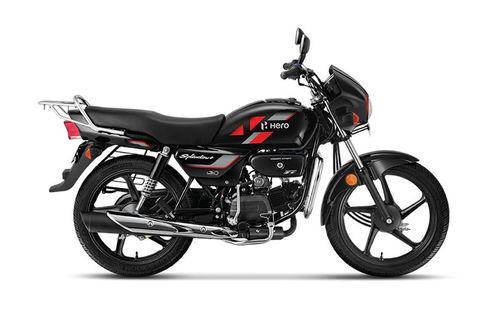About TVS Bikes
TVS Motor Company, part of the TVS Group, traces its origins back to 1911 when T.V. Sundaram Iyengar founded T.V. Sundaram Iyengar and Sons in Madurai, India. The company initially operated as a bus service provider, pioneering the concept of public transportation in Southern India. With a strong emphasis on customer satisfaction and operational efficiency, the TVS Group expanded into multiple sectors, including automotive and finance.
Entering the Automotive Market (1955–1970s)
In the 1950s, TVS ventured into the automotive industry by establishing a dealership for bicycles and mopeds. Recognizing the growing demand for two-wheelers in India, the group laid the groundwork for entering two-wheeler manufacturing.
In 1962, the TVS Group set up a collaboration with Clayton Dewandre Holdings in the UK to establish Sundaram Clayton, which manufactured automotive components like brakes and exhausts. This experience in precision engineering would later pave the way for TVS's foray into the two-wheeler market.
Formation of TVS Motor Company (1979)
TVS Motor Company was officially incorporated in 1979 to produce motorcycles, mopeds, and scooters for the Indian market. The company introduced its first product, the TVS 50, in 1980. This two-wheeler was India’s first indigenously designed moped and became an instant success due to its affordability, fuel efficiency, and utility for rural and urban commuters.
Partnership with Suzuki (1982–2001)
In 1982, TVS entered into a technical collaboration with Suzuki Motor Corporation, Japan, forming TVS-Suzuki Ltd. This partnership brought advanced Japanese technology to India, leading to the development of reliable and efficient two-wheelers.
Key models during this period included:
- Suzuki Samurai: Known for its ruggedness and reliability, it became a favorite among daily commuters.
- Suzuki Shogun: A performance-oriented two-stroke motorcycle that gained a cult following among enthusiasts.
- Suzuki Supra:A practical commuter bike that offered good mileage and durability.
The partnership also helped TVS improve its manufacturing processes and expand its dealer network across India. By the late 1990s, TVS-Suzuki had established itself as one of the leading two-wheeler manufacturers in the country.
Breaking Away: Becoming TVS Motor Company (2001)
In 2001, TVS ended its collaboration with Suzuki, citing differences in vision. Following the split, the company rebranded itself as TVS Motor Company Limited. Despite losing access to Suzuki's technology, TVS showcased its ability to innovate independently by launching the Victor, its first in-house motorcycle. The Victor was a major success due to its superior mileage, reliability, and affordability.
This period marked TVS's transformation into a fully Indian company, focused on research and development (R&D) to create products tailored to the needs of Indian consumers.
2000s: Expansion and Innovation
TVS continued to expand its product portfolio and market presence throughout the 2000s. Key developments during this period included:
TVS Apache Series (2006): The Apache series was a game-changer for TVS, targeting the growing segment of performance-oriented motorcycles. With sporty designs and advanced features, the Apache series became one of India’s most popular motorcycles.
Scooter Segment: TVS entered the scooter market with models like the TVS Scooty (targeted at women riders) and TVS Wego. These scooters were lightweight, stylish, and easy to handle, capturing a significant share of the market.
TVS started exporting two-wheelers to international markets, strengthening its presence in Africa, Latin America, and Southeast Asia.
2010s: Focus on Technology and Performance
The 2010s saw TVS doubling down on innovation, with significant investments in R&D and the development of cutting-edge products.
Apache RTR Series: TVS introduced advanced iterations of the Apache, featuring Race-Tuned Fuel Injection (RT-Fi), ABS, and aggressive styling. Models like the Apache RTR 160 and Apache RTR 200 4V became favorites among enthusiasts.
Electric Mobility: TVS began exploring electric mobility solutions, launching the TVS iQube Electric in 2020, a smart and eco-friendly scooter with connected technology.
BMW Partnership (2013): TVS entered a strategic partnership with BMW Motorrad to co-develop motorcycles in the sub-500cc category. This collaboration led to the launch of the BMW G 310 R and BMW G 310 GS, as well as TVS's own RR 310, a flagship sportbike based on the same platform.
Key Achievements and New Launches
- TVS Jupiter (2013): Aimed at families, the Jupiter became one of the best-selling scooters in India due to its practical features and comfortable ride.
- TVS NTorq 125 (2018): This sporty scooter targeted the youth segment with its edgy design, Bluetooth connectivity, and peppy performance.
- TVS RR 310 (2017): Developed under the BMW partnership, the RR 310 offered premium performance and design, making TVS a serious player in the premium motorcycle segment.
Sustainability and Electric Mobility (2020s)
TVS has been actively working towards sustainability, focusing on electric vehicles (EVs) and eco-friendly manufacturing. The company’s iQube Electric scooter represents its commitment to clean mobility and connected technology. TVS is also investing in EV infrastructure and expanding its electric portfolio to compete in the rapidly growing market.
Awards and Recognition
TVS Motor Company has received numerous accolades for its quality, innovation, and customer satisfaction, including the prestigious Deming Prize for Total Quality Management (TQM) in 2002 and the TPM Excellence Award from the Japan Institute of Plant Maintenance.
Present-Day and Future Vision
Today, TVS is one of the top two-wheeler manufacturers in the world, with a presence in over 80 countries. The company continues to innovate, focusing on performance, sustainability, and smart mobility solutions. TVS aims to become a global leader in the EV segment while maintaining its stronghold in conventional two-wheelers.
With a legacy of over a century, TVS Motor Company remains synonymous with quality, reliability, and innovation in the two-wheeler industry.
TVS Motor Company, part of the TVS Group, traces its origins back to 1911 when T.V. Sundaram Iyengar founded T.V. Sundaram Iyengar and Sons in Madurai, India. The company initially operated as a bus service provider, pioneering the concept of public transportation in Southern India. With a strong emphasis on customer satisfaction and operational efficiency, the TVS Group expanded into multiple sectors, including automotive and finance.
A Brief History
TVS Motor Company, one of India's leading two-wheeler manufacturers, has a rich history that began in 1962 as part of Sundaram Clayton, producing automotive components like brakes and compressors. The company entered the two-wheeler segment in 1978 with the launch of mopeds. In 1980, it introduced India's first two-seater moped, the TVS 50. A significant milestone was the collaboration with Suzuki Motor Corporation in 1982, producing a range of successful motorcycles like the Suzuki Shogun and Samurai. This partnership lasted until 2001, after which TVS focused on indigenous innovation, launching notable models such as the TVS Victor and Apache series.
TVS has been a pioneer in incorporating cutting-edge technology into its products, including the first motorcycle with digital ignition and the first bike with ABS in India. The company has also ventured into the electric vehicle market, reflecting its commitment to sustainability. Today, TVS remains a prominent player, known for its wide range of two-wheelers, including motorcycles, scooters, and electric options, supported by a robust R&D foundation and a strong focus on customer satisfaction.
Brand USP: The TVS Advantage
TVS stands out in the highly competitive Indian two-wheeler market due to its focus on innovation, reliability, and affordability. Here's what makes TVS unique:
Innovative Engineering
TVS integrates advanced technologies like SmartXonnect, RT-Fi (Race Tuned Fuel Injection), and iQube Electric Technology, ensuring a blend of modern features with efficient performance.
Wide Product Range
From the sporty Apache RTR Series to the efficient Star City Plus and the stylish NTorq 125 scooter, TVS caters to a diverse set of customers.
Racing Heritage
TVS has a strong presence in motorsports, and its experience in racing directly influences its performance-oriented motorcycles like the TVS Apache RR 310.
Durability and Affordability
TVS bikes are renowned for their rugged build, long-lasting performance, and low maintenance costs, making them ideal for urban and rural customers alike.
Eco-Friendly Focus
TVS is committed to sustainability, offering models like the TVS iQube, its electric scooter, as part of its drive towards green mobility.
TVS Bikes Latest Updates
TVS Motor Company achieved its highest-ever monthly sales in October, with a total of 482,495 units sold. This represents a 20% growth compared to the same period last year.
In November, TVS launched the updated Apache RTR 160 4V with new features and enhancements, priced at ₹1.40 lakh. This model includes improved performance and updated styling.
TVS introduced new color options for the TVS NTORQ scooter, enhancing its appeal to younger riders and expanding its market reach.
TVS Motor Company reported its highest-ever revenue and profits for the second quarter of the financial year 2024-25. This strong financial performance underscores the company's robust market position and operational efficiency.
TVS Bikes Series
The TVS Apache series is a popular line of motorcycles produced by TVS Motor Company, known for their sporty design, advanced technology, and performance-oriented features. Launched in 2005, the Apache series has grown to include several models, each catering to different segments of motorcycle enthusiasts.
- Apache RTR 160
- Apache RTR 160 4V
- Apache RTR 180
- Apache RTR 200 4V
- Apache RR 310
TVS Bike Price in Range
- TVS Sport: ₹59,881 - ₹71,383
- TVS Radeon: ₹59,880 - ₹81,394
- TVS Star City Plus: ₹75,000 - ₹78,000
- TVS Raider: ₹84,869 - ₹1.04 lakh
- TVS Apache RTR Series: ₹1.20 lakh - ₹2.72 lakh
- TVS Ronin: ₹1.35 lakh - ₹1.73 lakh
- TVS Apache RR 310: ₹2.75 lakh - ₹2.97 lakh
TVS Bikes Dealers in India
TVS has a robust network of 3836 dealerships in 904 cities across India. These dealerships ensure that customers have easy access to TVS bikes, scooters, and services.
TVS makes it easy to locate the nearest dealership through its online dealer locator tool: TVS Dealers
TVS Bikes Service Centers in India
TVS Motor Company is backed by an expansive network of 4,200+ authorized service centers, ensuring that customers have access to high-quality maintenance and repair services.
You can locate the nearest authorized service center through: TVS Service Centre
TVS Bikes Toll-Free Number
TVS Bikes Customer Care can be reached at this toll-free number if you have any questions, concerns, or service requests: 18002587111.
How to get TVS Bikes loan in India
To get a TVS bike loan in India, you need to meet basic eligibility criteria, including age (21-60 years), stable income, and a good credit score. Required documents typically include identity, address, and income proof. You can apply at TVS dealerships, which partner with financial institutions, or directly with banks or NBFCs. Once approved, the loan amount is disbursed to the dealer or to you, and the bike is delivered. Repayment is made in monthly EMIs over 12 to 60 months. It's advisable to compare offers for the best interest rates and loan terms
Why CarBike360?
CarBike360 is your go-to platform for all things related to cars and bikes. With detailed specifications, expert reviews, and real-time updates on the latest models, it simplifies the buying process. Whether you’re looking for new or used vehicles, it offers a wide selection across all brands. Plus, you can easily compare prices, find dealers in your area, and explore loan options. With expert advice and a user-friendly interface, CarBike360 ensures you make informed decisions, making vehicle shopping hassle-free and transparent.

